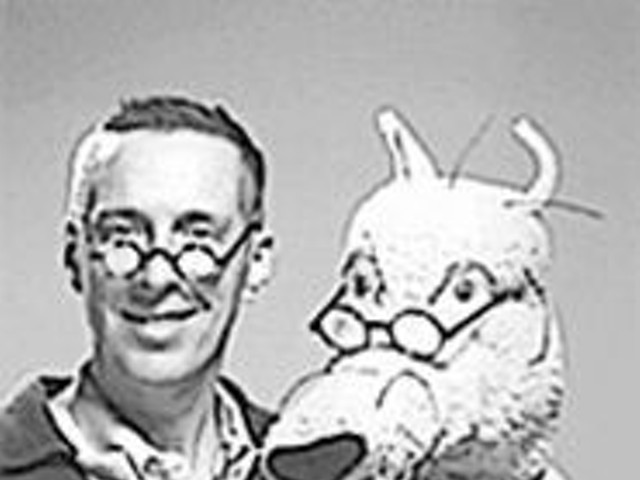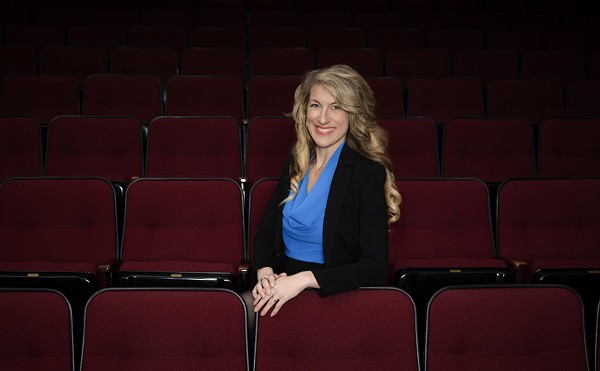The residents of the ironically named White House -- in which vital peace negotiations eventually take place -- have reached bottom in this less-than-grand hotel after falling from a variety of heights. John Adams (A.C. Smith) is a sexually disgraced preacher, Betty (Linda Kennedy) a former nurse now scrubbing toilets because of a jailbird past, Othel (Dennis Lebby) a cuckolded World War II vet with a game leg, Martha (Larissa Forsythe) a would-be dancer reduced to gyrating lewdly in a go-go club and Ruben (Erik Kilpatrick) a jazzman denied his instrument by an artery-popping, life-threatening medical condition.
We first encounter this sad-sack crew as they drift in and out of the hotel's shabby lobby during early morning, squabbling incessantly, barking insults, talking but seldom listening. By Act 1's conclusion, however, they've united against a common enemy: an invading army of Hell's Angels who have not only seized the neighborhood by terrorist force but also roughly stolen Ruben's saxophone. When one of the gang, Cliff (Joel Lewis), drunkenly stumbles into the hotel lobby after harrying a terrified John Adams, an enraged Othel finally mounts a counterassault, pulling a handgun and declaring the Angel a prisoner of war. But as the lights go down on the first act, the newly united White House denizens, still flushed with adrenalized excitement, realize they can't exult in victory: Gun still leveled at the bound Cliff, Othel plaintively asks his gathered troops, "Now, what are we gonna do with this motherfucker?"
Lee never quite answers that question satisfactorily: Legends' final act lacks the sustained energy of the play's first half -- despite its thematic relevance, a caesura in which everyone gathers to watch the moon landing puts too much of a brake on the carefully built momentum -- and Lee provides an archly poetic resolution to the otherwise realistic conflict. Lee also fails to draw Hell's Angel Cliff with the same complex shading with which he renders his other characters. It's especially odd, given the centrality and violent contentiousness of race relations in the period, that Lee almost entirely avoids addressing the issue of bigotry in the exchanges between white Cliff and the largely African-American hotel residents. Cliff lacks the necessary edge: He wounds superficially when his character should be a sharp, dangerous knife that cuts to the bone. The actor bears some responsibility in this: Lewis gives an assured performance, but he projects an inappropriate likability. However gaudily he's decorated in tattoos and swaddled in leathers, Lewis simply lacks sufficient menace, and Cliff thus follows too short a path from perdition to redemption.
Some of these problems may diminish as Lee and director Talvin Wilks rework the play, which is receiving its world premiere at the Black Rep. And whatever tweaking takes place in the future, there's plenty to enjoy in the present: If Cliff proves slightly anemic, Lee provides rich, full-blooded roles for most of Legends' cast. Kennedy squeezes every last comedic drop from her tartly juicy dialogue, and Lebby deftly balances humor, anger and pathos as the pivotally important Othel. Smith teeters on caricature in the play's first half, but he deepens John Adams later. Kilpatrick struggles a bit with sax player Ruben, who's laden with too much symbolic baggage, and Forsythe sometimes turns annoyingly shrill, but both manage occasional moments of vivid emotional clarity.
Although just emerging from its chrysalis, Legends already has a butterfly's beautiful markings and, like an Apollo rocket on its launching pad, offers abundant promise of flying high and far.






